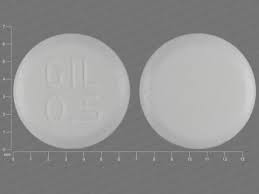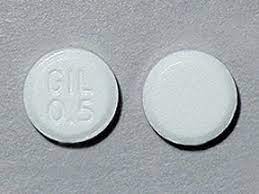
The classification of the drug: Azilect is part of a class of medications known as monoamine oxidase inhibitors (MAOIs). They specifically block MAO type B, the enzyme responsible for breaking down neurotransmitters, such as dopamine, in the brain.
What is Azilect?
Azilect (rasagiline) is a medicine prescribed to alleviate the signs of Parkinson's illness. It is a drug that increases dopamine levels within the brain, improving motor performance and controlling people with Parkinson's disease. Azilect can be an integral part of a complete treatment regimen comprising other therapies and medications.
Azilect, the generic name for rasagiline, is a prescription oral medicine in the monoamine oxygenase inhibitor (MAOI) class. It is given under the brand label Azilect to treat Parkinson's disease. It targets MAO-B enzymes found in the brain, breaking down dopamine. Azilect assists in maintaining higher levels of dopamine while reducing motor problems in patients with Parkinson's disease. Adhering to the dosing guidelines for patients is essential, and any potential interactions between drugs must be discussed with your healthcare provider. Though generally accepted, slight adverse effects such as headaches and nausea could happen. Rarely severe reactions occur; however, they require medical care. Azilect can be a helpful instrument in the multifaceted treatment of treating Parkinson's.
Warnings
- Azilect is not recommended to be taken with other MAOIs or specific drugs such as meperidine, tramadol, and methadone because it could cause severe interactions and even a dangerous condition called serotonin syndrome.
- Anyone with a history of medical issues like cardiovascular disease, hypertension, and liver issues should take Azilect cautiously.
- The risk of becoming hypertensive when foods high in tyramine (aged wine, cheeses, and certain types of meat) are consumed during Azilect.
Before You Take This Medication
Before you take Azilect, tell your healthcare doctor if you suffer from any health issues, are taking other medicines (including prescription and non-prescription supplements), or are breastfeeding or pregnant.
How to Take Azathioprine?
Be sure to follow the doctor's recommendations to take Azilect. The tablets are usually taken every day, alongside food or even without. Do not break, crush, or chew on the tablets.
Details on Dosage
The suggested dosage is 0.5 to 1 mg at least once a day. The doctor can alter the dosage based on your body's response and how you tolerate it.
What Happens If I Miss a Dose?
If you don't remember a dose, you should take it immediately. If it's near the time to take the next dose, you can skip the missed dose and follow your usual dosing regimen.
What Happens If I Overdose?
If you suspect you have overdosed, see a doctor immediately. The symptoms of an overdose can include intense headaches, hallucinations, an erratic heartbeat, or other dangerous adverse effects.
What Should be Avoided?
Avoid drinking or eating foods with a high concentration of tyramine during treatment of Azilect to avoid a hypertensive crisis. Also, avoid different MAOIs or certain medications that may be incompatible with Azilect.
Side Effects of Azilect:
Azilect (rasagiline) may cause several adverse reactions, a few less severe and temporary. Others might be more serious and require medical treatment. You must be aware of possible side effects and contact your physician when you notice any unusual or extreme signs. Below is an overview of the possible effects of these side effects:
Mild Effects:
Headache: Moderate to mild headaches are a typical side result, particularly when you start Azilect. They usually improve over time.
Joint Pain: Certain people can experience joint pain or even discomfort.
Nausea: Nausea can be a widespread side effect, particularly in the first few days of treatment. The use of Azilect, along with food, may reduce the symptoms.
Feeling dizzy: It's possible to experience dizziness or lightheadedness, particularly when rising from a lying or sitting place.
Mild Stomach upset: This may be accompanied by symptoms such as stomach pain, indigestion, or stomach bloating.
Adverse Effects:
Hallucinations: In a few circumstances, Azilect can lead to hallucinations, vivid dreams, or even nightmares. Inform your physician if you notice any strange sensory or visual sensations.
Chest Pain: If you notice tightness or pain in your chest or discomfort, seek medical attention immediately since it could indicate a severe health issue.
The changes in your mood or behavior: Anxiety can trigger behavior, mood, and cognition modifications. Tell your physician when you observe changes in your mood or thoughts.
Severe Headache: A serious headache, particularly if it is associated with other signs and symptoms, must be assessed by an expert medical doctor.
Allergic Reactions: Though uncommon allergies, like itching, rash, and swelling, extreme dizziness and breathing problems are possible. Get medical attention immediately when these signs appear.
However, few people suffer from these adverse effects; however, many patients can take Azilect ideally without triggering any problems. If you suffer from any adverse effects, discussing them openly with your physician is essential. They can advise on managing the effects or altering your treatment regimen should it be necessary. Only discontinue or modify your medication after consulting your doctor since abrupt changes could cause unintended effects.
Interaction with Other Drugs
Azilect (rasagiline) is a drug that interacts with various medications, such as medications prescribed by a doctor, products sold over the counter, and herbal supplements. These interactions may impact the effectiveness of Azilect and increase the chance of adverse effects or cause potentially harmful reactions. To ensure your safety and optimal performance of your medication, It is essential to notify your doctor about any medicines you take. There are many interactions with drugs to be aware of
- Other MAOIs: Taking Azilect alongside other monoamine oxide inhibitors (MAOIs) could result in the dangerous condition known as serotonin syndrome. This condition may cause symptoms such as anxiety, rapid heartbeats, high blood pressure, high fever, and possibly even death. It is essential not to use Azilect alongside other MAOIs.
- Serotonergic Medications: Certain antidepressants and other drugs that increase serotonin levels, like selective serotonin reuptake inhibitors (SSRIs) and serotonin-norepinephrine reuptake inhibitors (SNRIs), can also increase the risk of serotonin syndrome when combined with Azilect. Before recommending these drugs, the doctor will carefully note the possible benefits and potential risks.
- Opioids: Drugs such as meperidine, tramadol, or methadone are not recommended to be taken while using Azilect due to the possibility of causing serotonin-related syndrome if used with MAOIs.
- Sympathomimetic Drugs: The medications which stimulate the sympathetic nerve system, like decongestants and certain asthma medicines, as well as appetite suppressants, could interfere with Azilect and lead to increased blood pressure. Talk to your physician before taking these drugs.
- Medicines Metabolized through CYP1A2 Azilect may inhibit the CYP1A2 enzyme responsible for specific substances' metabolism. It can increase levels of these medications within your body, raising the chance of adverse consequences. Be sure to inform your doctor if you are taking any medication that is metabolized through CYP1A2.
- Azilect may react with foods that contain tyramine which can trigger a hypertensive condition that is defined by a sudden rise in blood pressure. Avoid older cheese, preserved meats, and certain kinds of wine and food items that contain high levels of tyramine while taking Azilect.
- Azilect is a blood pressure medication that may interact with drugs that lower blood pressure. This can result in an additional effect on the reduction of blood pressure. The doctor will monitor your patient's blood pressure and modify the dosage of your medication as required.
Keep in mind that this is a partial list of possible interactions. Ensure to provide your doctor with a complete record of all the medications, supplements, and products you're using. Your physician will review the potential interaction and make informed decisions regarding the treatment you are taking to protect your health and well-being. Only make modifications to your medication regimen after consulting with your doctor before making any changes.
Be aware that this article is not an attempt to substitute the advice of a medical professional. Always seek your physician's advice before attempting or stopping any medicine such as Azilect.







